
Paul Edward Valentine Giamatti is an American actor. Giamatti began his career as a character actor before establishing himself in leading roles in film and television. He has received numerous accolades including one Emmy Award and two Golden Globe Awards, along with a nomination for an Academy Award.

Raymond Hart Massey was a Canadian, later American, actor, known for his commanding, stage-trained voice. For his lead role in Abe Lincoln in Illinois (1940), Massey was nominated for the Academy Award for Best Actor. Among his most well-known roles were Dr. Gillespie in the NBC television series Dr. Kildare (1961–1966), Abraham Farlan in A Matter of Life and Death and Jonathan Brewster in Arsenic and Old Lace (1944).

Estelle Louise Fletcher was an American actress. She is best known for her portrayal of the antagonist Nurse Ratched in the psychological drama film One Flew Over the Cuckoo's Nest (1975), which earned her numerous accolades including, the Academy Award, BAFTA Award, and Golden Globe Award for Best Actress.
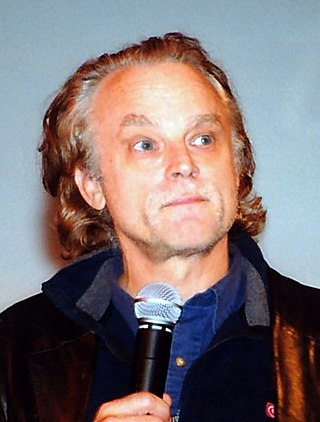
Bradford Claude Dourif is an American actor. He is best known for voicing Chucky in the Child's Play franchise (1988–present), portraying Gríma Wormtongue in The Lord of the Rings film series and his Oscar nominated role as Billy Bibbit in One Flew Over the Cuckoo's Nest (1975).

Stanley Tucci Jr. is an American actor and filmmaker. Known as a character actor, he has played a wide variety of roles ranging from menacing to sophisticated. Tucci has earned numerous accolades, including five Emmy Awards, two Golden Globe Awards as well as nominations for an Academy Award, a BAFTA Award, and a Tony Award.

Franklin Wendell Welker is an American voice actor. He began his career in the 1960s, and holds over 860 film, television, and video game credits as of 2023, making him one of the most prolific voice actors of all time. With a total worldwide box-office gross of $17.4 billion, he is also the third-highest-grossing actor of all time, as of 2011.

Peter Graves was an American actor who portrayed Jim Phelps in the CBS television series Mission: Impossible from 1967 to 1973 and in its revival from 1988 to 1990. His elder brother was actor James Arness. Graves also played airline pilot Captain Clarence Oveur in the 1980 comedy film Airplane! and its 1982 sequel Airplane II: The Sequel.

Joan Allen is an American actress. Known for her work on stage and screen, she has received a Tony Award as well as nominations for three Academy Awards, a BAFTA Award, three Primetime Emmy Awards, and three Golden Globe Awards.

Victor Charles Buono was an American actor, comic, and briefly a recording artist. He was known for playing the villain King Tut in the television series Batman (1966–1968) and musician Edwin Flagg in What Ever Happened to Baby Jane? (1962), the latter of which earned him Academy Award and Golden Globe Award nominations. He was a busy actor from his late teens until his death at the age of 43 and,with his large size and sonorous voice, he made a career of playing men much older than he was.

Richard Arnold Roundtree was an American actor and model, who was best known for his portrayal of private detective John Shaft in the 1971 blaxploitation film Shaft and four of its sequels, Shaft's Big Score! (1972), Shaft in Africa (1973), its 2000 sequel and its 2019 sequel, as well as the eponymous television series (1973–1974). He was also known for his features in several TV series, including Roots, Generations, and Desperate Housewives.

Rex Ingram was an American stage, film, and television actor.
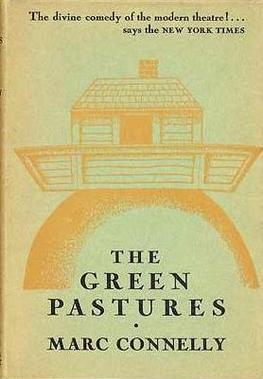
The Green Pastures is a play written in 1930 by Marc Connelly adapted from Ol' Man Adam an' His Chillun (1928), a collection of stories written by Roark Bradford. The play was the winner of the Pulitzer Prize for Drama in 1930. It had the first all-black Broadway cast. The play and the film adaptation were generally well received and hailed by white drama and film critics. African-American intellectuals, cultural critics, and audiences were more critical of white author Connelly's claim to be presenting an authentic view of black religious thought.
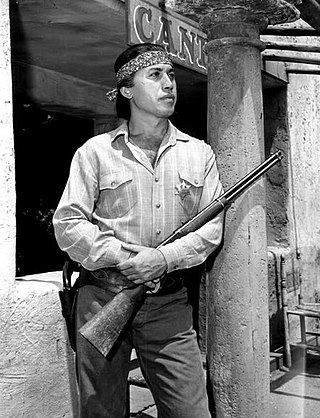
Michael George Ansara was an American actor. He portrayed Cochise in the television series Broken Arrow 1956-1958, Kane in the 1979–1981 series Buck Rogers in the 25th Century, Commander Kang in Star Trek: The Original Series and Star Trek: Deep Space Nine, Deputy U.S. Marshal Sam Buckhart in the NBC series Law of the Plainsman, and provided the voice for Mr. Freeze in the DC Animated Universe. Ansara received a star on the Hollywood Walk of Fame for his work in the television industry, located at 6666 Hollywood Boulevard.
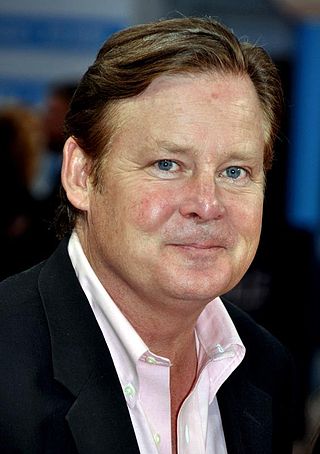
Joel Murray is an American actor. He is well known for his roles in the television series Mad Men, Grand, Love & War, Dharma & Greg, Still Standing, and Shameless. He has also appeared in films including God Bless America and Monsters University.
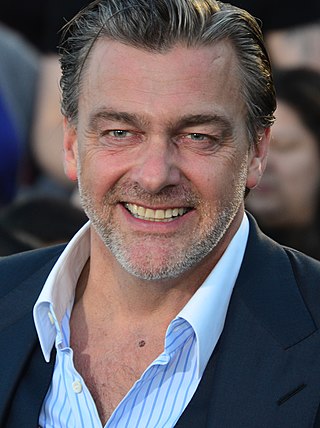
George Raymond Stevenson was a British actor. He portrayed Dagonet in the film King Arthur (2004) and Titus Pullo in the BBC/HBO television series Rome (2005–2007). He portrayed two Marvel Comics characters: Frank Castle / The Punisher in Punisher: War Zone (2008) and The Super Hero Squad Show and Volstagg in the Marvel Cinematic Universe (2011–2017). His other films include Kill the Irishman (2011), where he portrayed mobster Danny Greene; The Three Musketeers (2011); and RRR (2022), where he portrayed the villainous Governor Scott. His television roles include Ukrainian mobster Isaak Sirko in the seventh season of Dexter, Blackbeard in the third and fourth seasons of Black Sails, voicing Gar Saxon in Star Wars Rebels and Star Wars: The Clone Wars, and portraying Baylan Skoll in Ahsoka.

Ryan Douglas Hurst is an American actor. He is best known for his roles as Gerry Bertier in Remember the Titans (2000) and Opie Winston in the FX drama series Sons of Anarchy (2008–2012). He portrayed the Norse god Thor in the 2022 video game God of War Ragnarök, for which he received a BAFTA Award nomination.

James Joseph Sloyan is an American actor.

Robert Francis Hastings was an American actor. He was best known for his portrayal of Lt. Elroy Carpenter on McHale's Navy and voicing Commissioner James Gordon in the DC Animated Universe.

George Washington has inspired artistic and cultural works for more than two hundred years. The following lists cover various media to include items of historic interest, enduring works of high art, and recent representations in popular culture. The entries represent portrayals that a reader has a reasonable chance of encountering rather than a complete catalog. Lesser known works are not included.
The presence of African Americans in major motion picture roles has stirred controversy and been limited dating back decades due to lingering racism following slavery and segregation. "Through most of the 20th century, images of African-Americans in advertising were mainly limited to servants like the pancake-mammy Aunt Jemima and Rastus, the chef on the Cream of Wheat box." While African American representation in the film industry has improved over the years, it has not been a linear process; "Race in American cinema has rarely been a matter of simple step-by-step progress. It has more often proceeded in fits and starts, with backlashes coming on the heels of breakthroughs, and periods of intense argument followed by uncomfortable silence."
















